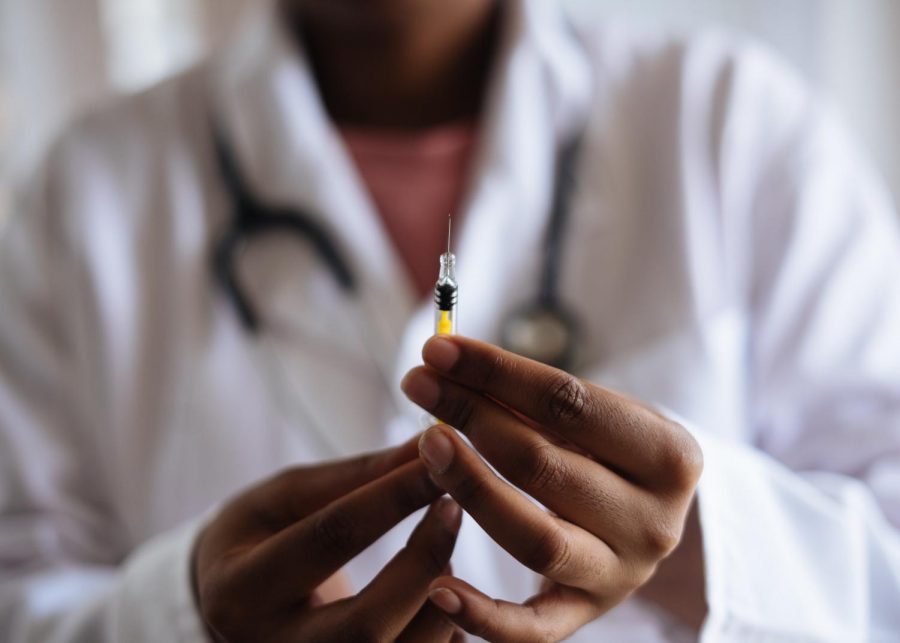Hibben: The US is Morally Obligated to Share Its Excess Vaccines
May 11, 2021
Over 3 million people worldwide have died from COVID-19 as of the writing of this article. The United States has vaccinated close to half of the population. But even after the entire population gets vaccinated, it will still have millions of shots to spare. Critics argue that the U.S. has hoarded these vaccines, but the States have committed to donating millions of doses to allied countries. The United States recently pledged to sharing up to 60 million doses of the AstraZeneca COVID-19 vaccine, as well as other equipment to help fight the coronavirus, with Mexico, Canada and India. But these countries are still struggling enormously. India has reached over 20 million cases of COVID-19, with cases still rising and shortages of medical care and supplies. This devastating surge in India indicates a problem that COVID-19 has highlighted: global health access inequity. The United States should continue sharing and donating medical supplies, including vaccines, to help other countries. These struggling countries’ management of the coronavirus is essential to the world’s complete recovery from the COVID-19 pandemic.
Low-income countries like India already face health crises because of a lack of funds and easy access to health care. In addition, these countries still deal with food security issues, which affects their ability to bounce back from the pandemic. Some of these countries are slowly recovering from epidemics, such as that of the Ebola virus. However, COVID-19 stopped much of that progress. Global trade dropped by billions of dollars in 2020, and while some countries like the U.S. have relatively bounced back, vulnerable countries have not been able to do so. They continue to deal with the economic recession and cannot provide remittance to their residents as the States have.
The United States remains a global leader in economic strength, but much of this power has been built on the backs of much poorer countries. Our history is filled with the exploitation of other periphery countries too small or too poor to notice. The U.S. has invaded areas of the world as it pleases and has toppled governments it disagrees with. Its weapons consistently cause conflict and tragedy. Even then, the U.S. promotes fairness and freedom, yet so many countries do not possess the resources necessary to survive. How is it possible that some countries have so much wealth and influence while others still struggle with basic survival?
As residents of a nation with so much to give, we are morally obligated to help those in need, and sharing our excess vaccines to whoever needs it most is a part of that obligation. We cannot advance as a society without lifting up those who are struggling. Most countries grapple with the same issues for generations, making it a much more complicated solution than just “hard work” or “pulling themselves up by their bootstraps.” As a collective society, we can succeed in tackling more complex problems if we have the compassion to help others.
Health experts at Duke University reported that current global rates of vaccination are incredibly slow, as 92 of the world’s poorest countries will not be able to vaccinate 60% of their populations until at least 2023. Vaccine access is essential to global recovery from the pandemic. The United States has over 1 billion vaccination doses in stock or contract, which is enough to vaccinate the entire U.S. population twice. Now, as the U.S. begins managing the pandemic better, we must keep expanding vaccine sharing to other countries that are struggling to get back on track.









Lukas • May 13, 2021 at 11:16 am
Vaccine diplomacy presents an unprecedented opportunity for the United States to expand peaceful diplomacy and soft power initiatives. Far removed from embargoes, sanctions, and military actions, vaccines represent a chance to return to the ideals of the Peace Corps and USAID, outreach by our nation to the world. If our population refuses the vaccine, we must quickly pivot and bring these vaccines to those who need them. From the hotspots of India to our closest neighbors in Mexico and Canada, the United States can earn goodwill and protect our own public health by donating these vaccines.